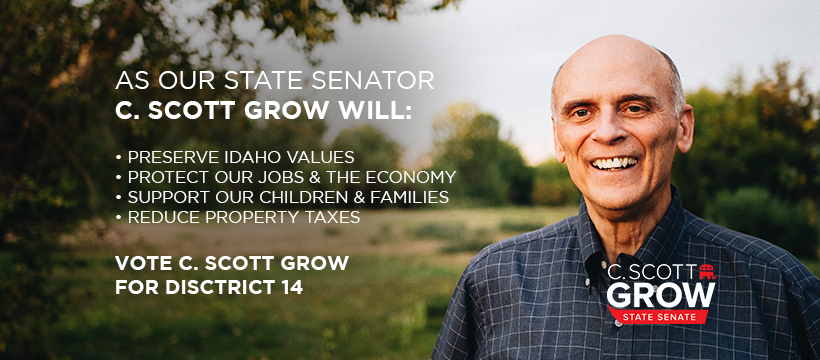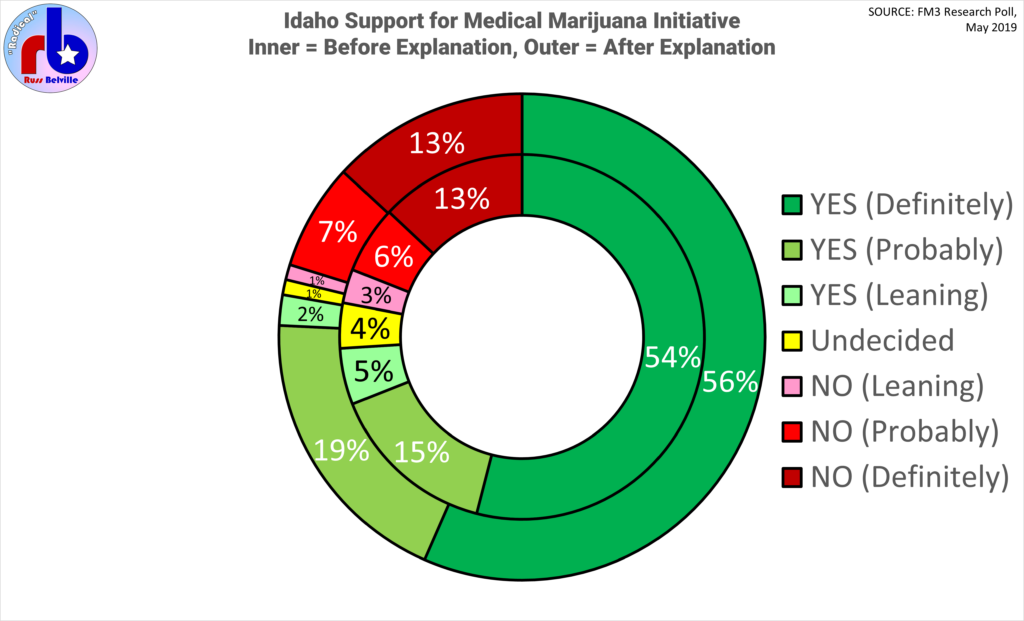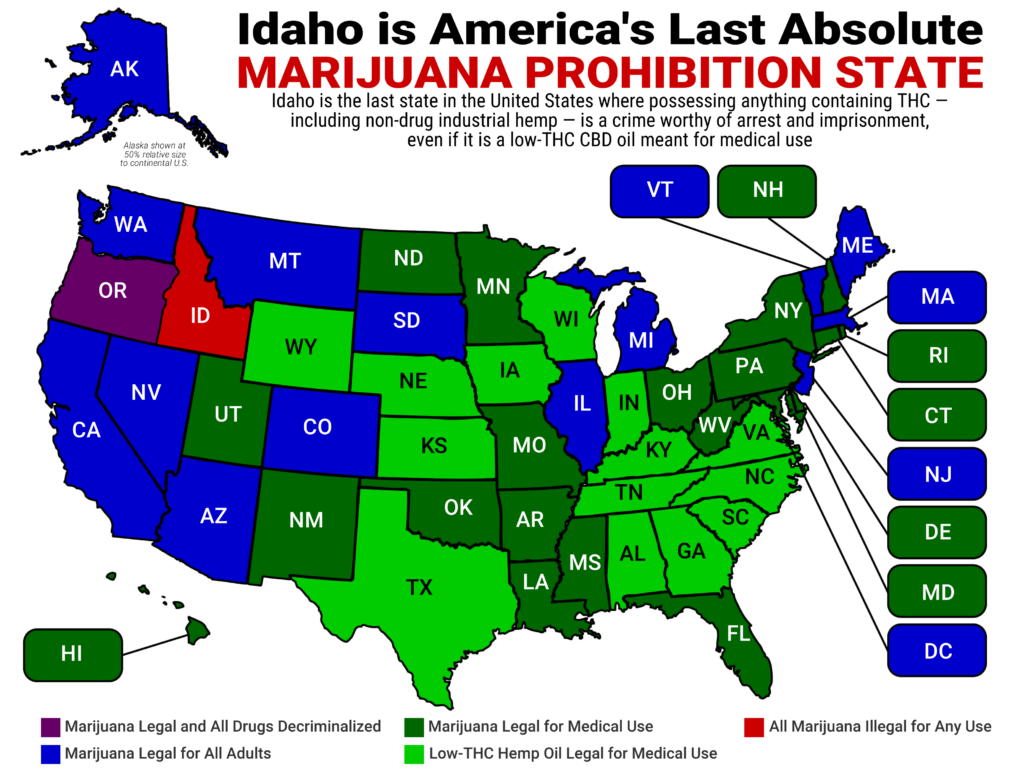“Today I introduced legislation that will Protect and Preserve children, families, communities and the State of Idaho,” writes Idaho State Senator C. Scott Grow, using Trumpian capitalization. “This legislation will ensure illegal drugs stay illegal. If passed by the Idaho legislature, this measure would be on the ballot in November 2022. All Idahoans would have the opportunity to vote on this important health and public safety policy.”

C. Scott Grow ironically doesn’t want anyone in Idaho growing marijuana. He has proposed a constitutional amendment that would forever prohibit the state of Idaho from legalizing for any purpose any psychoactive drug that is not already legal as of the year 2020 and approved by the federal Food & Drug Administration.
Grow’s amendment creates a Section 30 to Article III of the state’s constitution, which would ban the legalization of any “psychoactive drug,” defined as “any schedule I or schedule II controlled substance as identified in sections 37-2701(t), 37-2705, and 37-2707, Idaho 43 Code, as such sections existed on July 1, 2021.”
But never mind the fact that medical knowledge about substances change with new learning, and that new beneficial substances may be discovered in the future. Grow’s amendment contains codes refer specifically to marijuana, as well as all schedule I and schedule II substances in Idaho Code that include magic mushrooms and ibogaine.
For now, that is. As was pointed out by another state senator, Grant Burgoyne, “The code references can change over time. What is in one title today, the title might be numbered differently tomorrow. … The Constitution would end up with references to code sections that either no longer exist or address different topics.”

Idaho’s Legislature Hates Marijuana
Idaho is the last state in America with absolute marijuana prohibition. Not only are adult-use and medical marijuana illegal here, even the low-THC CBD oil that was legalized federally under the 2018 Farm Bill is still illegal in Idaho. It’s so absurd that Idaho State Police declared a 6,700lb load of industrial hemp being trucked through the state was “the biggest drug bust in state history.“
This amendment is just the latest anti-marijuana salvo from prohibitionist state legislators who are out-of-touch with their constituents on the issue of marijuana.
In 2013, State Senator Chuck Winder (now the Senate President) sponsored a non-binding resolution for the Legislature to “state its opposition to efforts to legalize marijuana for any purpose in the State of Idaho.”
But then Dr. Sanjay Gupta on CNN introduced the world to Charlotte Figi, a six-year-old epileptic girl who found remarkable success in using low-THC CBD oil. Led by neighboring Utah in 2014, seventeen states—mostly conservative Southern and Midwestern states—passed laws to allow CBD oil.
In 2015, even the Idaho Legislature that had stood against all marijuana legalization just two years prior decided that standing against stopping little kids’ seizures wasn’t politically attractive. They passed a law to allow CBD oil, only to have then-Gov. Butch Otter become the first and only governor to veto such a law.
He said in his veto statement that the law that allows epileptic children to use a non-psychoactive cannabis oil made from plants grown out-of-state had the “potential for misuse and abuse with criminal intent.”

Idaho’s Legislature Willing to Blow Up Constitution to Stop Marijuana
In 2019, the Idaho legislature was so afraid of the potential of a successful medical marijuana initiative that they sought to virtually eliminate the constitutional petitioning rights of all Idaho citizens.
Idaho is already a difficult state in which to place an initiative petition. One has eighteen months or fewer to collect the equivalent of 6 percent of the last election’s registered voters statewide. In addition, those signatures must also comprise 6 percent of the registered voters from 18 out of 35 of Idaho’s legislative districts (the idea being that one can’t just collect signatures from Idaho’s seven major metropolitan areas; one must also collect in some rural areas).
The 2019 measure was intended to shrink that gathering time from eighteen months to six months, to increase the signature requirements from 6 percent to 10 percent, and to increase the geographic requirement from 18 to 32 districts.
While that would have severely impacted our marijuana campaigns, so too would it impact every possible initiative campaign. Groups from across the political spectrum denounced the bill. Still, it passed through both houses of the Idaho Legislature before receiving a veto from Gov. Otter.

Prohibitionists Can’t Win Without Cheating
Grow’s amendment, should it make it to the 2022 ballot, represents the worst type of legislative tyranny—a legislative majority thwarting the will of a citizen majority.
Under the Idaho Constitution, the proposals to legalize medical and adult-use marijuana must be made through statutory initiative; that is, those laws, if they pass, would merely be statutes.
Grow’s amendment, should it pass, is part of the state constitution and would outrank any laws that are passed, regardless of the margin of passage.
That means it is possible that medical could pass on the 2022 ballot with, say, 75 percent of the vote and adult-use with maybe 55 percent, but if the prohibition amendment passes with just 50.01 percent, it wins and medical and adult-use marijuana would be constitutionally banned forever.
These tactics are becoming typical among prohibitionist lawmakers who know that this issue is far more popular with the people.

Idaho’s Not the First State to Play Legislative Shenanigans with Marijuana
Take Mississippi. Last cycle, activists there collected enough signatures in the state (which is a tougher state to collect in than Idaho, by the way) to place medical marijuana on the ballot. Lawmakers then had three options: they could approve the initiative and it becomes law, they could reject the initiative and it goes to the ballot, or they could place their own competing initiative on the ballot.
They chose the last option and created a highly-restrictive medical marijuana law on the ballot alongside the citizens’ more-liberal initiative. That means that for the citizen initiative to pass, it didn’t just have to get over half the vote, it also had to beat the legislature’s initiative to become law.
As if that wasn’t hurdle enough, the legislature also added a “gateway question” to the medical marijuana choices. First, voters had to decide whether there should by any medical marijuana law at all. If a voter chose “yes,” then they had to pick the citizens’ or the legislature’s initiative. If a “yes-for-any-medical-marijuana” voter forgot to chose which one, their “yes” vote was nullified.
But if a voter chose “no” on the gateway question, they did not have to choose between the citizens’ and legislature’s initiatives. Their “no” vote stood, regardless.
In other words, to pass medical marijuana in 2020 in Mississippi, “yes” voters had to vote “yes” on the gateway question and “yes” on the citizens’ initiative, and hope it got more votes than the legislature’s. But to beat medical marijuana, “no” voters got two chances; one if the gateway question failed, and a second chance to kill the citizens’ initiative by choosing the legislature’s if it didn’t.
Despite all the shenanigans, Mississippi voters passed both measures by over two-third’s margin.
Then consider neighboring Montana, where pro-marijuana voters also had to pass two measures—one to set a legal age for marijuana in the state constitution and another to create an adult-use marijuana statute.
Both of those measures passed by over fourteen percentage points.
Finally, consider South Dakota, which went from being a conservative absolute marijuana prohibition state like Idaho to passing both medical marijuana with 70 percent of the vote and adult-use marijuana with 54 percent.
To recap, in 2020 there were three so-called “red states” that each needed to pass two votes in order to change their marijuana laws, and they all three passed both votes with flying colors.
Now you can understand why Idaho legislators are so desperate to permanently enshrine prohibition in the state Constitution.






